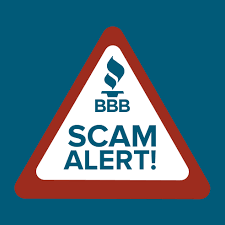
INDIANA – While not necessarily a new type of scam, the rates of government impostor scams are beginning to rapidly increase across the nation, particularly from scammers claiming to represent the Social Security Administration (SSA). As tax season comes to a close and the rate of IRS-impersonation scams begins to decline, SSA impersonators rise to take their place.
In 2020, more than $395,000 was lost to government impostor scams across the nation.
In a May 2021 Semiannual Report to Congress, the inspector general of the SSA reported that the rates of social security fraud calls increased exponentially between May and August 2020. Additionally, scammers are using advanced techniques to convince victims of their legitimacy, including using official SSA phone numbers, employee names, official logos or symbols, and fabricated federal badges. In some cases, scammers are texting or emailing copies of these badges to victims to convince a wary consumer of their legitimacy.
To combat against impersonators, the Office of the Inspector General for the Social Security Administration states that the SSA will never:
- Text or email images of an employee’s official government identification
- Suspend your Social Security number
- Threaten you with arrest or other legal action unless you immediately pay a fine or fee
- Require payment by retail gift card, wire transfer, internet currency or mailing cash
- Promise a benefit increase or other assistance in exchange for payment
- Send official letters or reports containing your personal information via email
“Don’t believe anyone who calls you unsolicited from a government agency and threatens you – just hang up,” said Gail S. Ennis, inspector general for the SSA in a January 8, 2021 press release. “They may use real names or badge numbers to sound more official, but they are not. We will keep updating you as scam tactics evolve – because public awareness is the best weapon we have against them.”
To avoid government impostor scams, such as SSA-impersonators, Better Business Bureau recommends consumers follow these guidelines:
- Evaluate first contact. Government agencies typically reach out via postal mail and are unlikely to contact you via phone, email or text, especially if it is unsolicited. If the caller is threatening or aggressive, it is best just to hang up and contact the agency personally through their official website.
- Do not trust names or badge numbers. Impostors can easily access government employee names online for many agencies, which they use to establish credibility. Badge numbers can also be accessed or fabricated, and the seeming willingness for a caller to release their name or badge number is a tactic used to gain trust.
- Avoid being pressured. A common tactic for government impostor scams is to use scare tactics to convince a victim to immediately pay or risk being imprisoned, fined or other punishment. They may threaten that a law enforcement officer will immediately be dispatched to your residence unless the outstanding “bill” is paid in full.
- Spread the word. If you or someone you know has been exposed to a government impostor scam, whether from the SSA or another government agency, be sure to let your friends and family know about the scam and report it to the appropriate agency and BBB Scam Tracker.
For more information about government impostor scams during the coronavirus pandemic, go to BBB.org/FakeGov.
If you have been a victim of a social security impersonator scam, report it to the Office of the Inspector General for the SSA at oig.ssa.gov/REPORT.
BBB requests those who have been a victim of a scam to report it to BBB Scam Tracker. Information provided may prevent another person from falling victim.



